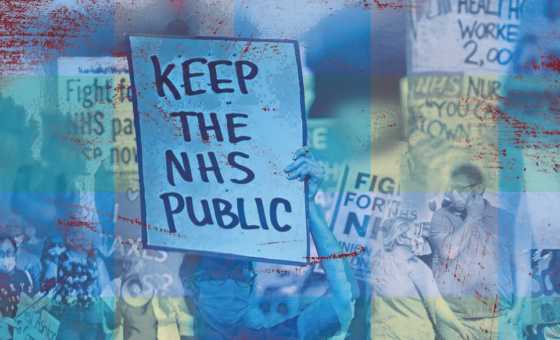This is the last article you can read this month
You can read more article this month
You can read more articles this month
Sorry your limit is up for this month
Reset on:
Please help support the Morning Star by subscribing here
BRITAIN’S crippled social housing model is “unsustainable” and unbearable financial pressures are creating a “deep and devastating” strain on residents, campaigners warn today.
Tenants are suffering “relationship breakdowns, mental health problems and physical ill-health” as a result, the Social Housing Action Campaign (SHAC) told the Morning Star.
The intervention comes as new research from finance firm Legal & General (L&G) reveals that 47 per cent of all households are concerned about keeping up with rent and mortgage payments over the next year amid the skyrocketing cost of living.
The pensions and life insurance giant’s latest “rebuilding Britain” index found that a whopping 95 per cent of working families have suffered a take-home pay cut over the last year, as inflation hits 40-year high double-digit figures.
Lower-income households, which spend a greater proportion of their earnings on food and energy — two key drivers of soaring prices – have suffered the most, while more than eight in 10 of those earning over £100,000 are now better off, suggests the index, which looked at 20,000 households nationwide.
L&G’s Sir Nigel Wilson said: “Our research exposes the stark choices that inflation is forcing on many people in Britain.
“Levels of employment continue to improve but real wages are lagging behind.
“It is particularly concerning to see that not only is access to housing and healthcare stalling or falling nationwide, but that cost-of-living pressures are widening the inequalities that the [Tory government’s] levelling-up agenda is aiming to address.”
The study shows that the gap between London and the poorest parts of Britain is still widening, with the capital’s jobs and prosperity score improving to 73 out of 100, compared to England’s north-east — 58 — and north-west — 61 — seeing no improvement.
SHAC secretary Suzanne Muna warned that it is “extremely hard for people to absorb” sudden and drastic price rises hitting everyday essentials, especially for social housing tenants who are “often very vulnerable.”
She noted additional worsening cost pressures for the sector, including a 7 per cent increase in social and shared-owner rents across housing associations from next Monday and rises in some service charges of more than 100 per cent.
“This whole model of public housing has become unsustainable,” Ms Muna charged.
“Arrears across the housing association sector grew at a rate of 10 per cent annually between 2018 and 2021, which was before the cost-of-living crisis bit – the figures will be even worse this year.
“We hear constantly from our tenants and residents that they are falling into ever greater rent arrears or having to build up a pile of debt with little hope that it can be repaid.
“Often it is a case of just delaying the inevitable and waiting for an eviction notice. A wave of evictions will mean that councils have more people to support in expensive temporary accommodation.
“The sector has become so commercialised that the poorest are just shunted across to councils to protect their surpluses and appease investors.”
She stressed the “deep and devastating” impact on people.
The government highlighted the help it is providing to households, including an imminent £900 payment for those on eligible and means-tested benefits.
The financial support — which was confirmed in this month’s spring Budget — will be split into three instalments, with the first payment of £301 due between April 25 and May 17, the Department for Work and Pensions has confirmed.
There will also be further payments worth £150 for eligible disabled people and £300 for pensioners.












